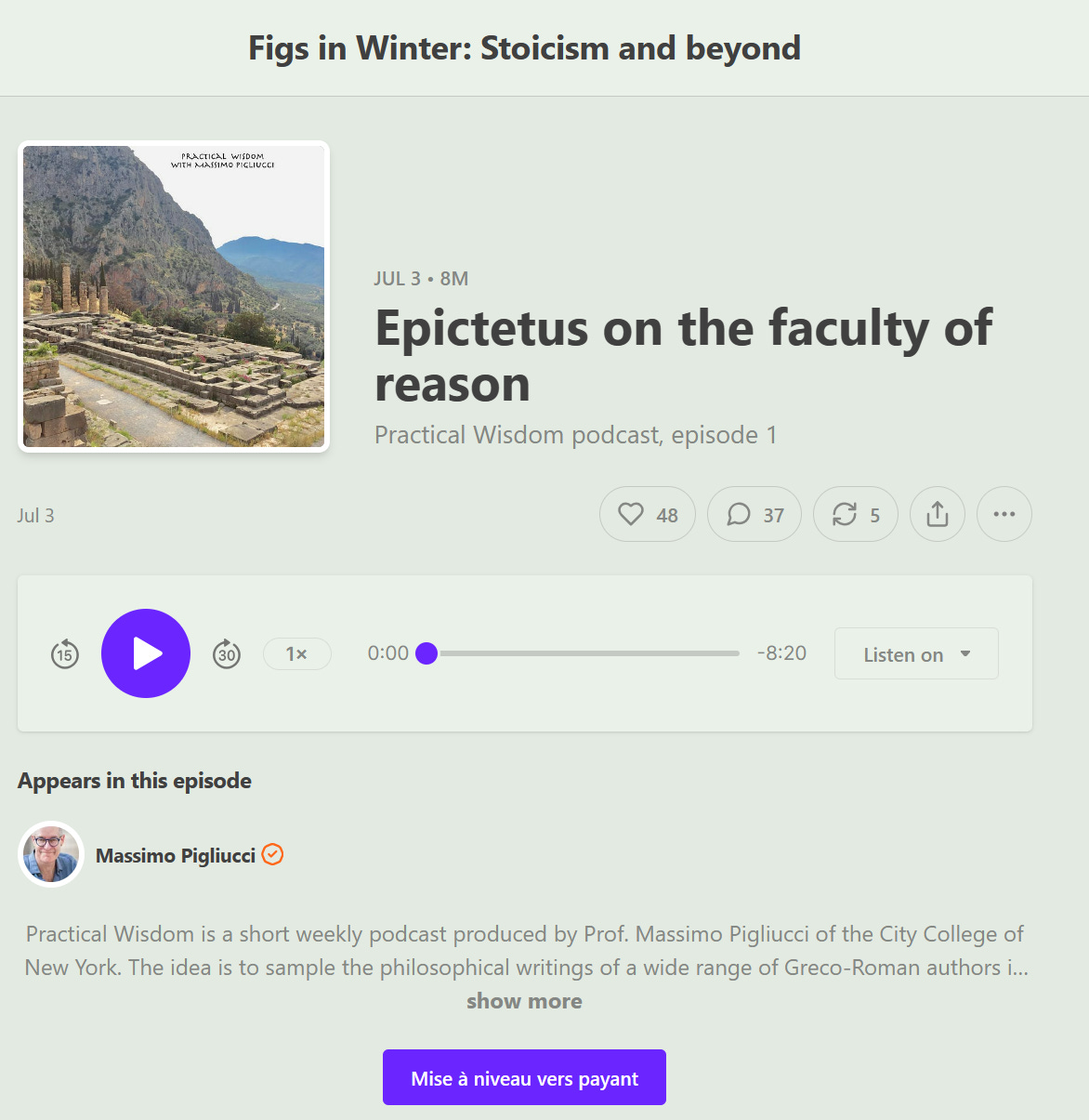Ahri's unqualified thoughts #25
Random articles, quotes, videos, musings. Easy to consume content: 1 quote, 1 tweet/storm and 1 article/video.
On today's menu, a tweet about product vs. governance tokens, and an article from Massimo Pigliucci on the faculty of reason.
1 quote
“If you want to improve, be content to be thought foolish and stupid.” – Epictetus
1 tweet/storm
Alex Svavenik, the renowned CEO of Nansen.ai, a company providing blockchain data and research for crypto teams and investors worldwide, shared a fascinating Venn diagram (lol) today, showcasing a comparison between holders of X product and the corresponding governance token holders.
I fully agree with his following observation, which highlights the essence of a successful product.
From my perspective, it brings me joy to see individuals prioritizing the product itself instead of engaging in power struggles for governance or possessing futile tokens (Yes, I continue to doubt the existing DAO/governance model; feel free to challenge me on this).
1 article/video
Massimo Pigliucci is an absolute legend, and he stands as one of my most reliable sources regarding Stoicism and Greco-Roman philosophy. It's a shame that his daily wisdom podcast came to an end after an impressive run of over 1000 episodes, but I am delighted to see him return with a weekly podcast.
On his substack
regularly posts articles/reading recommendations, and now his podcast. Here is a short excerpt introducing it:Welcome to Practical Wisdom, a weekly podcast about ancient Greco-Roman philosophy. I am your host, Massimo Pigliucci.
By way of introduction, this is a new weekly podcast series which will focus on selected writings from the ancient Greeks and Romans, aiming at extracting from them general wisdom and practical guidance useful for life in the 21st century.
The first series of the podcast, beginning with this episode, alternates among five works: Aristotle’s Nicomachean Ethics; Cicero’s Tusculan Disputations; Epictetus’s Discourses; Epicurus’s Being Happy (that is, his letters and aphorisms); and Plato’s early Socratic dialogues (Ion, Laches, Lysis, Charmides, Hippias Major, Hippias Minor, and Euthydemus). Future series, if produced, will tackle additional ancient works from the Greco-Roman canon.
In this first edition, he analyses a reading from Epictetus’ Discourses (I.1.1 to I.1.6). While I encourage you to read/listen to it, the TLDR goes as follows:
Reason is the central human ability in philosophy, emphasized in the Greco-Roman tradition and particularly by the Stoics, who considered it essential for living according to nature.
Epictetus distinguishes reason from other faculties or areas of study, such as grammar and musicology, which provide tools but do not determine choices or decisions.
Reason stands out because it can examine itself and other faculties, enabling self-improvement and evaluation of their uses, whereas other faculties are subject to reason's scrutiny.






Much appreciated, thank you!